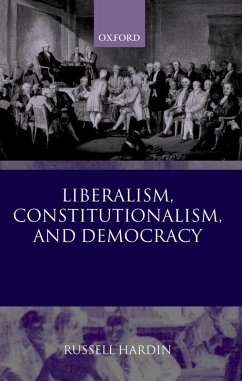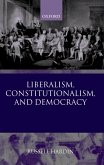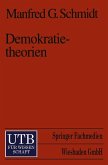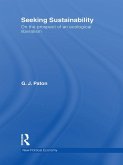In his ground-breaking book, the leading political philosopher Russell Hardin develops a new theory of liberal constitutional democracy. Arguing against the standard consensus theories, the author shows how social co-ordination on limited, sociological mutual advantage lies at the heart of liberal constitutionalism when it works to produce stable government. The book argues that liberalism, constitutionalism, and democracy are co-ordination theories. They work only in societies in which co-ordination of the important power groups for mutual advantage is feasible. It then goes on to examine and interpret the US constitution as motivated centrally by the concern with creating a government to enable commerce. In addition, the book addresses the nature of the problems that the newly democratic, newly market-oriented states face. The analysis of constitutionalism is based on its workability, not on its intrinsic, normative, or universal appeals. Hardin argues, similarly, there are harsh limits on the possibilities of democracy. In general, democracy works only on the margins of great issues. Indeed, it is inherently a device for regulating marginal political conflicts.
Dieser Download kann aus rechtlichen Gründen nur mit Rechnungsadresse in A, B, BG, CY, CZ, D, DK, EW, E, FIN, F, GR, HR, H, IRL, I, LT, L, LR, M, NL, PL, P, R, S, SLO, SK ausgeliefert werden.









